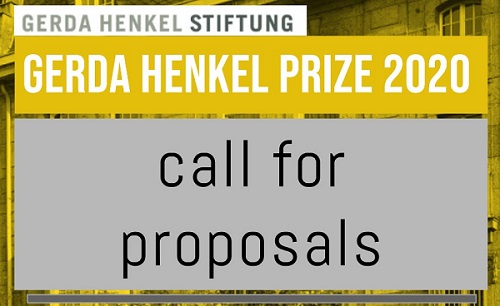
As security-related issues, the fading role of the state and the gradual elimination of borders are central themes in both political and scholarly debates today. “Failing states” as a safe haven for terrorists, transnational organized crime, a loss of overall legitimacy, shrinking state authority in conflict-ridden regions are the relevant keywords in this context.
There is good reason for a more fine-grained perspective, however. Current security issues are multi-faceted and dynamic, ranging from military protection to efficient public infrastructure and a viable social negotiation process. As a matter of fact, the state is not irrevocably losing ground in security-sensitive areas. In some areas of national and personal security, state authority and sound governmental practice are more important than ever.
The “Security, Society and the State” research programme reflects these contradictory trends. It targets new security-related issues that are prime examples of the post-Cold-War era but have been largely neglected in mainstream research. The programme is intended to encourage junior scholars to pursue unconventional research agendas that are nonetheless crucial, while providing senior scholars with the opportunity to focus intensively on work in progress for a limited period. Moreover, the objective is to combine basic theoretical research with concepts that are applicable to present-day political issues of security policy.
The Foundation’s Board of Trustees decides on the applications on the basis of recommendation by an International Advisory Committee.
International Advisory Committee
Prof. Dr. J. Peter Burgess | Paris
Prof. Dr. Christopher Daase | Frankfurt/Main
Prof. Dr. Beatrice Heuser | Glasgow
Prof. Dr. Wolfgang Seibel | Konstanz
Prof. Dr. I. William Zartman | Washington D.C.
The research programme addresses scholars of all disciplines in the humanities and social sciences. Types of funding include grants for research scholarships and research projects. PhD scholarships are only granted in connection with a research project. Research projects should be closely related to one or more of the five fields of research.
Prerequisites
The Foundation generally accepts applications for research projects made by universities, other research institutes or comparable institutions as well as by one or several Postdocs or scholars with Post Doctoral Lecture Qualification.
The grants for research projects involve, depending on the type of project, the assumption of costs for personnel, travel, materials and/or other costs.
The applicants must be actively involved in the research work of the project.
Project staff on research projects may only be financed by PhD or research grants. A fundamental prerequisite for a grant is that project staff conduct their own research, which is published under their name. The simultaneous receipt of salary or retirement pension and a research scholarship is not possible. The period of support for Foundation stipend holders working on Ph.D. or research projects can be extended by up to 12 months if the holder becomes a parent during the period covered by the stipend and has an entitlement to maternity or parental leave. Individual arrangements must be discussed with the Foundation’s administrative office.
As part of a research project, the costs incurred of visiting (foreign) scholars can also be financed.
By contrast, a research scholarship should be applied for by one scholar alone for a project that he conducts himself.
Application Documents
From now on, it is only possible to apply electronically. The necessary application documents can be uploaded in the electronic application form.
Proposals will only be accepted in English language and should include:
- description of the research proposal (max. 8 pages)
- plus bibliography if necessary (in addition to the max. 8 pages)
- documents printed on one side only, at least font size 11 and line spacing 1.5
- please choose a readable font, e.g. Arial 11 pt. or Times New Roman 12 pt. (We kindly ask you to keep to the formal requirements on how to compile application documents)
- work plan and time schedule, travel itinerary (if needed)
- detailed cost calculation
- specific funds being applied for must be precisely defined
- no college or tuition fees
- no overhead costs
- curriculum vitae and list of publications of the applicant(s)
- if needed, curriculum vitae and list of publications of the proposed project participant(s)
- if needed, academic certificates of the project participant(s) (Masters, PhD, professorship, etc.; please do not send Bachelor certificates)
If also a scholarship for the applicant is planned:
- academic certificates of the applicant (Masters, PhD, professorship, etc.; please do not send Bachelor certificates)
Please do not additionally send the documents by email or postal mail.
For more details click on the link below:
https://www.gerda-henkel-stiftung.de/en/spsss



